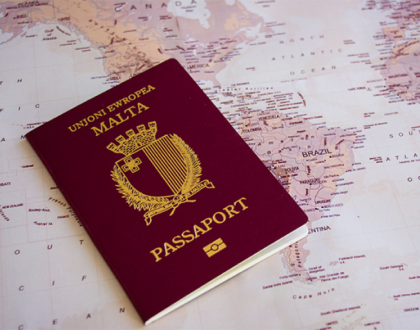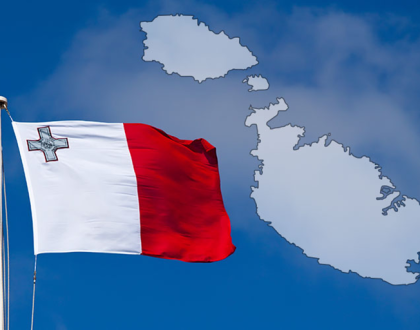The Evolution of Banking in Malta

#Banking in #Malta has a rich history that dates back centuries, evolving to meet the changing needs of the island's #economy. From #traditional practices to modern #digitalsolutions, the banking industry in Malta has seen significant transformations over the years. In this blog post, we will explore the past and present of banking in Malta, highlighting key milestones and innovations that have shaped the #financial landscape of the Mediterranean nation.
Historical Overview of Banking in Malta
Early Banking and Financial Activities
To understand the evolution of banking in Malta, we must look back at its early history. While the island's financial activities can be traced back to the times of the Order of St. John and various trading communities, formal banking institutions did not emerge until much later.
Development of Modern Banking Institutions in the 20th Century
For Malta, the 20th century marked a pivotal period in the development of modern banking institutions. As the island transitioned from a British colony to an independent nation, the banking sector underwent significant changes to meet the growing demands of a booming economy and expanding population.
Historically, this period witnessed the establishment of various local and international banks, paving the way for Malta to become a reputable financial hub in the Mediterranean region. This growth was fueled by increasing trade activities, foreign investments, and the emergence of new financial products and services tailored to meet the needs of a modern economy.
Regulatory Framework and Policy Evolution
Key Regulatory Milestones
To ensure stability and growth in Malta's banking sector, key regulatory milestones have been achieved over the years. This includes the establishment of the Malta Financial Services Authority (MFSA) in 2002, which consolidated regulatory functions under a single umbrella organization, enhancing supervision and oversight.
Impact of European Union Membership on Regulations
One of the most significant influences on banking regulations in Malta has been its membership in the European Union (EU) since 2004. The adoption of EU directives and regulations has harmonized Malta's banking laws with those of other member states, promoting financial stability, cross-border activities, and consumer protection.
EU membership has also facilitated access to the EU Single Market, enabling Maltese banks to offer their services across borders within the Union. This has not only widened their customer base but has also increased competition and innovation in the sector.
Evolution
Over time, Malta's regulatory framework has evolved to align with international standards and best practices, making the banking sector more resilient and competitive. The combination of domestic regulations and EU directives has created a robust environment that supports the growth and development of the banking industry in Malta.
Contemporary Banking Landscape
Major Banks and Their Roles
On the Maltese banking scene, major players like Bank of Valletta, HSBC, and APS Bank dominate the industry, providing a wide range of financial services to individuals and businesses. Bank of Valletta, as a leading local bank, plays a vital role in facilitating various banking transactions and supporting economic growth in Malta.
Technological Advancements and Digital Banking
Major advancements in technology have revolutionized the banking sector in Malta, with digital banking becoming increasingly popular among consumers. With the rise of online banking platforms and mobile applications, customers can now conveniently access their accounts, transfer funds, and make payments from anywhere at any time.
This shift towards digital banking not only offers convenience to customers but also allows banks to streamline their operations, reduce costs, and enhance security measures through advanced encryption technologies. Additionally, the adoption of innovative solutions like biometric authentication and artificial intelligence has further improved the overall banking experience for customers in Malta.
Challenges and Opportunities
Economic Vulnerabilities and Resilience
For a small island nation like Malta, economic vulnerabilities can pose significant challenges to the banking sector. The reliance on tourism and international trade makes the economy susceptible to external shocks. However, the resilience of the banking industry lies in its ability to adapt to changing economic conditions and stringent regulatory frameworks.
Future Prospects and Strategic Directions
The future prospects for banking in Malta are promising, with opportunities for growth in fintech, green finance, and digital banking. The strategic direction for banks in Malta should focus on innovation, customer-centric solutions, and sustainable practices. Embracing technological advancements and meeting the evolving needs of customers will be key to staying competitive in the global financial landscape.
For instance, partnering with fintech companies to offer innovative digital banking solutions can enhance customer experience and streamline operations. Investing in sustainable finance initiatives can also position Maltese banks as leaders in ethical banking practices, attracting socially conscious investors and customers.
Presently
The evolution of banking in Malta reflects a rich history of growth and adaptation to changing economic landscapes. From humble beginnings in the medieval period to the sophisticated banking sector of today, Malta has embraced innovation while staying true to its traditional values. As technology continues to shape the industry, Maltese banks are poised to remain at the forefront of financial services, catering to the needs of local and international clientele. The future of banking in Malta is bright, with a strong foundation built on a legacy of stability and resilience.
FAQs
What is the history of banking in Malta?
Banking in Malta has evolved from its early financial activities during the Order of St. John to the establishment of modern banking institutions in the 20th century. Key milestones include the formation of the Malta Financial Services Authority (MFSA) and the influence of EU membership on regulations.
How did Malta's banking sector develop in the 20th century?
The 20th century saw Malta's banking sector grow significantly as the island transitioned from British rule to independence. This period marked the establishment of both local and international banks, driven by increased trade, foreign investments, and economic growth.
What impact has EU membership had on banking regulations in Malta?
EU membership has harmonized Malta's banking laws with EU directives, promoting financial stability and consumer protection. It has also facilitated cross-border banking services within the EU, increasing competition and innovation in the Maltese banking sector.
What are some of the major banks in Malta today?
Key players in Malta's banking sector include Bank of Valletta, HSBC, and APS Bank. These institutions provide a range of financial services and play significant roles in the island’s economy.
What are the future prospects for banking in Malta?
Future prospects include growth in fintech, green finance, and digital banking. Banks in Malta are expected to focus on innovation, customer-centric solutions, and sustainability to stay competitive in the global financial landscape.
Michael
With over 20 years experience in web design, SEO and website promotion I always give you an expert advice in regard to any issues related to your Site Design, SEO, Internet Marketing, Promotion, Backlinks, Site Content. In order to help you find out what is missing or can be improved and get higher rankings in Google and more traffic.
Recommended Posts

Legal Win for Malta’s Citizenship Program
October 4, 2024

Why iGaming Brands Choose Malta
October 4, 2024

Malta Ranks Fifth Among European Islands
October 4, 2024



